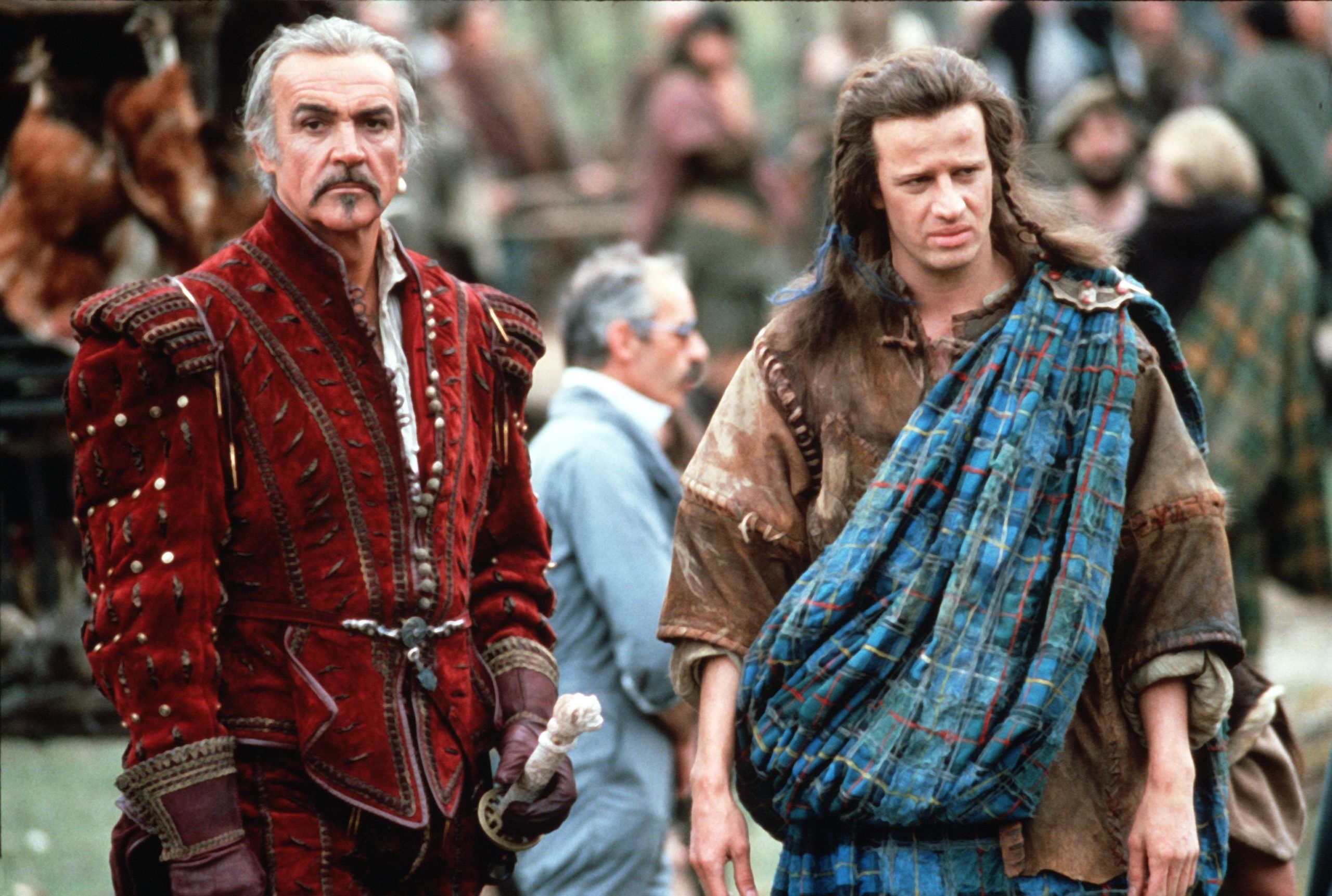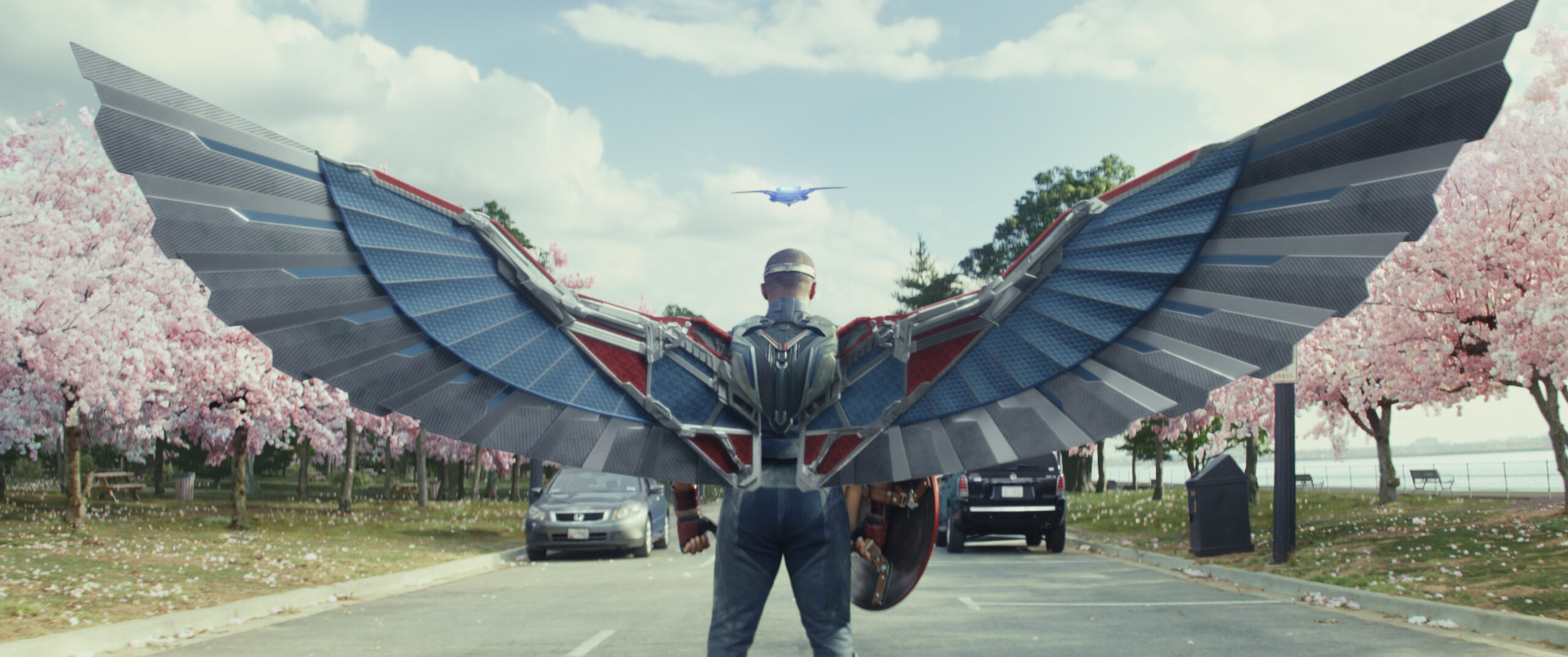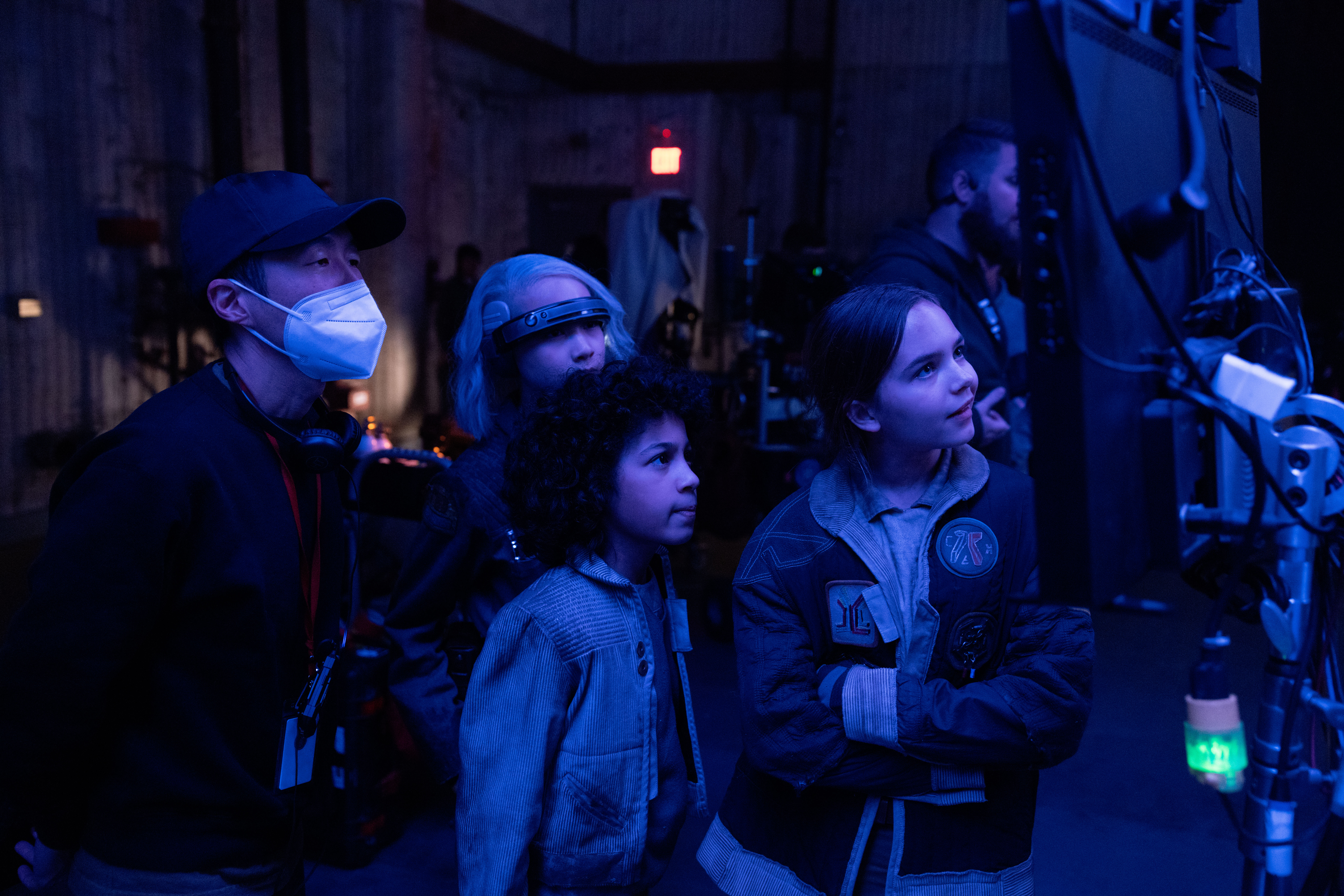Birthdays should be a time of celebration.
But for some people, it can be a turbulent day of the year.
The indie film All I Wish stars Sharon Stone, Tony Goldwyn, Famke Janssen, Ellen Burstyn and GIllese Marini.
It follows an older, but aspiring fashion designer struggling to find success and love. But, an unexpected meeting with her match happened on her birthday.
The film is being distributed by Universal and Paladin.
LRM had a phone interview with director and writer Susan Walter. We talked about the development of the script and getting the project off the ground after so many years.
All I Wish is currently out on video on demand and digital HD today. DVD release is on May 1st.
Read our delightful conversation in the transcript below:
Susan Walter: I’ve been catching up on your site. You have some sassy log lines. It was great. [Laughs] I like it.
LRM: We try. We tried. We try to keep busy.
Susan Walter: All right, well let’s get sassy. I’m ready.
LRM: Well, let me start with this. Where did he get the original idea for All I Wish from?
Susan Walter: So my favorite all time romantic comedy is When Harry Met Sally. I loved it, because obviously of the actors and it’s hilarious. But, I also love this idea of two characters who really deeply drawn who we see develop over long period of time. I thought that was kind of rare and wonderful. So I been do When Harry Met Sally because that had already been done. I followed the advice follow a pair of actors, characters over a longer period of time set any romantic comedies. They sort of meet on Monday and then by Friday they’re engaged. So I thought what’s a way that I can sustain having authority over multiple years and what’s the way in. I came up with the birthday hook–what I love about birthdays is every birthday or for at least on my birthday that sort of take stock of where I am in my life. I set goals for my head. In this time of reflection and thought that could be really useful in terms as a driver of the movie.
LRM: What specifically on why you were drawn to birthdays? I mean you could have chosen anything like any type of holiday, but why birthdays?
Susan Walter: I got the idea from an early producer who wants to make a Valentine’s Day movie. It’s already been done for a Valentine’s Day movie. And I think I’m really moved by this idea. Well, first of all, on your birthday, you always see the same people, right? If your best friend you see the person you’re involved with romantically. You see your family. Cinematically, it’s a way to keep the same characters coming back over and over again. Because during the course of a movie you will develop relationships with the character, then you don’t want them to disband. So I picked birthdays, because in the world of the movies I could bring the same characters back again and again. I also like about that time, I get really depressed on my birthday [laughs]. I worry like, “Oh my God. Are people going to remember it? What if they forget? Or what if nobody wants to see me?” You have to kind of plan your own party in your own mind. What if nobody wants to come or they have something better to do. I have a lot of anxiety about it or whenever we have a lot of anxiety about something–it’s really great to hash that out with yourself.
LRM: Tell me about the development of a Senna here. You made her character in her forties with the pursuit of an occupational fashion designer.
Susan Walter: Tell you what–I originally written the character in her twenties. That was the original draft of the script. I thought when you come out of school, everybody was scared, a little bit lost and how they’re going to get their foot in the door. I really wrote it firmly as a coming of age comedy about a woman coming of age in her twenties, which felt when I wrote it and appropriate age. Then Sharon Stone got her hands on the script. She called me up and she said, “No, no, no. Don’t make it a coming of age comedy about somebody in their twenties. Been there. Done that. Make it about a woman in her fifties and now you have something fresh.” And so when she came at me with that idea, it was so bold and something that I’d never seen before. I was like, “Yeah. We need to do that.” So now it became with her attached, as a coming of age comedy about somebody who lived a long life of missed turns. And what people are really responding to in the movie is this idea that it doesn’t matter if you’re not 21 or turning 30. You can be firmly 47, 48, 49 even in your fifties. And say, “You know what? I’m going to do something different now. I’m going to follow my dream and it doesn’t matter that I’m not young. I could do it now.”
LRM: [Laughs] So originally, it was a quarter life crisis. You changed it into a midlife crisis type of story. That’s awesome.
Susan Walter: It is awesome. I’ll tell you what, we screened the movie in Houston, Texas, for some non-industry people. I just wanted to see how it plays. Afterwards, a woman came up to me–we were in Texas and she had the big hair and the mascara streaming down her face–because she was weeping. She said to me, “My kids just left for college. I went through a nasty divorce last year. I’ve been very much alone and thinking that my life was over. For you, making a movie about a woman my age also equally lost, finding her way, finding love and starting a new career–seeing is believing. And I believe I can do it now. And thank you so much.” I felt so gratified in that moment, even if only a handful of people have that response. It’s really worth making.
LRM: Did you have a sort of like a slightly a comedic background and while writing the story? It almost seems like a lot of the scenes were out of Emily Giffin novel.
Susan Walter: [Laughs] Thank you. As a writer, it took me a little while to find my way. I started out writing drama and I would try to write these scenes that were really heightened and people fighting like, “I hate you! I hate you! I’m sorry I’ve ever met you.” I just find it laughing, because I just couldn’t sustain a conflict without laughing at it. So I realized I probably belong in comedy and I’ve spent a lot of time. I worked on TV sitcoms as an assistant director for some really great directors, Tommy Cherones and Jimmy Burrows. I kind of had the rhythm of comedy in my brain. This is where I gravitated towards.
How proud of you when you actually scored a Sharon Stone to be on this project? How did you manage to get her on board in the first place?
Originally, I written this for a 25 year old. I had offered her the role as her mother and so we made a formal offer. I had an actress attached to play the twenty-five-year-old version. We made a formal offer after she read the script and then the movie fell apart. This other actor was called on to another project. It kind of went away and she was the one who came back to me many months later. She called me on the phone and she said, “I can’t this script out of my mind. You sent it me to play the mom. That’s not really very interesting to me. I was going to do it, because I really liked the movie. I really liked the script and the story. But, I have another idea.” It was her idea completely to aged it up.
I’m so glad that she proposed that I’m going to be honest. I resisted it at first. I was scared. I thought it was going to have to change a lot in the script. For one thing, if you’ve seen the movie, I wrote a scene about a woman playing beach volleyball in a bikini. I thought that nobody wants to see a 50-year-old during that. Guess what? She does it. You believe her. She’s actually a really good athlete. She plays basketball with her son. She pulled it off. Never question her for a second that she’s too old to be doing that. And honestly, shame on me. But I did going into it, but she schooled me. Now I know better.
[Laughs] Shame on me thinking that she wouldn’t do that. But, she did do that for your movie in and it was a good scene. Very, very excellent.
[08:51] Right? And you don’t ever feel uncomfortable that there had been scenes with older actors. You’ll see them in bed and you’re kind of uncomfortable. I didn’t really need this feedback. I don’t think you have that watching Tony Goldwyn and Sharon Stone together. They’re both very appealing and they’re both very useful despite whatever age they are. They may be aged years, but they’re still very vibrant and vigorous. Fun to watch!
[09:26] Now with her producing, did this made it easier to actually attract other big stars onto the project like Tony Goldwyn and Famke Janssen?
[09:38] Oh, absolutely. I mean, when you get as an actor, a Sharon stone, her career speaks for itself. Her status, I’ll say that people know that you’re for real and Sharon Stone is such a generous human being. Whenever I needed help, she would pick up the phone. There were many times when I asked for her quote unquote advice, “Sharon, I need your advice. I can’t get this agent to call me back. What should I do?” And of course, her response, which was really what I was asking was “Give me his number. I’ll give him a call.” Let me tell you, when an agent gets a call from Sharon Stone–they respond. We would try to lay in some ground work, but she was a big gun. I was not shy about asking her to help me out what I needed it.
Excellent. How did you come to decision to direct this film yourself? This marks your directorial debut per se?
I’m going to be honest with you. Originally, the movie was set up at a studio. It had a $20,000,000 budget and I let it go as the director. I thought that I wanted to direct it since there is definitely autobiographical elements to the movie and to the character. A producer that I was working with convinced me to not be the quote unquote ball and chain on my own project. It’s very hard to get a movie off the ground if you’re a first-time director. Even harder if you’re a woman. Rather than hold my own project back, I let me this producer to try for eight years to get it made. It was set up with actors came in and went. Four directors came and went off the project. Then the fourth director, the script is a little bit of a mess at that point because I rewritten it for so many different studio executives and directors. Our director came in and her name’s Patricia Riggen.
She was going to direct it if she was available. She didn’t know if she was available yet, but she sat me down. She said, “Let’s talk about why you wrote this movie. What’s it about for you?” And we talked over the course of an afternoon. After that conversation, I went back into the script and I rewrote it–from me. She went off to do another movie as we knew might happen. At that point, having reclaim the script in my own vision–I wasn’t ready to give it away again. That moment came, like, who do you want to direct it? And I said, nobody can directed but me now. It was a long journey.
LRM: It was completely satisfying for you. Would you want to do this again?
Susan Walter: I can’t wait to do it again. I’m putting my next one together now. It’s an ensemble road movie. All women. In Mexico.
LRM: Is this in script development right now or it’s already in the pre-planning stages?
Susan Walter: It’s a script that I wrote with a friend of mine. She’s an actress. It’s called Baby Moon. It’s about a four sisters who take their pregnant and unmarried sister out on a baby moon. It’s a last vacation before she’s a single mom They go into Mexico and crazy stuff happens.
LRM: This isn’t personal for you again, right? Like you didn’t really do this yourself in Mexico.
Susan Walter: No. It is a cobbling together of a bunch of different crazy girl trip stories. We’ve decided to up the uptake by making the lead character to be pregnant. Walking around in a bikini with a big pregnant belly because I love visual comedy. We thought that would be fun.
LRM: Awesome. I can’t wait for that one too. Well, thank you very much for speaking with me, Susan. This is a hilarious movie.
Susan Walter: Thank you for this opportunity.
All I Wish is currently out on video on demand and digital HD today. DVD release will be on May 1st.
Source: LRM Exclusive

 FOR FANBOYS, BY FANBOYS
Have you checked out LRM Online’s official podcasts and videos on The Genreverse Podcast Network? Available on YouTube and all your favorite podcast apps, This multimedia empire includes The Daily CoG, Breaking Geek Radio: The Podcast, GeekScholars Movie News, Anime-Versal Review Podcast, and our Star Wars dedicated podcast The Cantina. Check it out by listening on all your favorite podcast apps, or watching on YouTube!
Subscribe on: Apple Podcasts | Spotify | SoundCloud | Stitcher | Google Play
FOR FANBOYS, BY FANBOYS
Have you checked out LRM Online’s official podcasts and videos on The Genreverse Podcast Network? Available on YouTube and all your favorite podcast apps, This multimedia empire includes The Daily CoG, Breaking Geek Radio: The Podcast, GeekScholars Movie News, Anime-Versal Review Podcast, and our Star Wars dedicated podcast The Cantina. Check it out by listening on all your favorite podcast apps, or watching on YouTube!
Subscribe on: Apple Podcasts | Spotify | SoundCloud | Stitcher | Google Play



